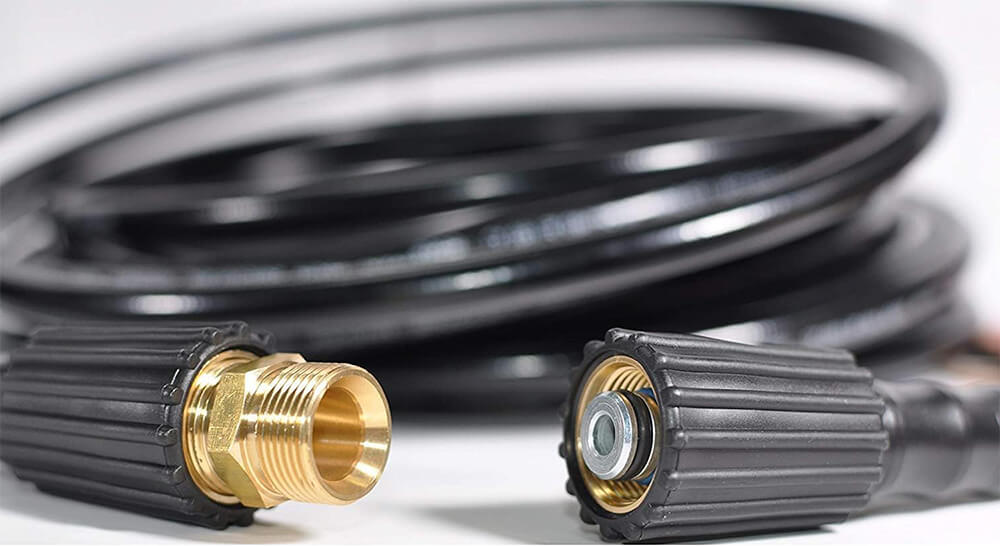
As a manufacturer specializing in pressure washer accessories, BISON is pleased to offer a wide range of high pressure hoses. BISON high pressure hose is designed with highest levels of innovation, quality and performance in mind to meet ever-changing needs of customers across a variety of industries and applications. All BISON high pressure hose products comply with international quality and safety standards.
Lots of in-stocked high pressure hose factory.
contact BISON| high pressure hose | H01 |
| Inner diameter | 6mm /0.236" |
| Single layer or double layer | Single layer |
| cotton hose or steel wire hose | cotton hose |
| Max pressure | 170Bar/2500PSI |
| Burst pressure | 400Bar/5800PSI |
| Length | 6(m)/19(ft), 8(m)/25 (ft), 10(m)/33(ft), 15(m)/50(ft), 20(m)/66(ft), optional |
| high pressure hose | H02 |
| Inner diameter | 6mm /0.236" |
| Single layer or double layer | Double layer |
| cotton hose or steel wire hose | cotton hose |
| Max pressure | 170Bar/2500PSI |
| Burst pressure | 760Bar/11022PSI |
| Length | 6(m)/19(ft), 8(m)/25 (ft), 10(m)/33(ft), 15(m)/50(ft), 20(m)/66(ft), optional |
| high pressure hose | H03 |
| Inner diameter | 6mm /0.236" |
| Single layer or double layer | Single layer |
| cotton hose or steel wire hose | steel wire hose |
| Max pressure | 200Bar/2900PSI |
| Burst pressure | 1000Bar/14500PSI |
| Length | 6(m)/19(ft), 8(m)/25 (ft), 10(m)/33(ft), 15(m)/50(ft), 20(m)/66(ft), optional |
| high pressure hose | H04 |
| Inner diameter | 8mm /0.315" |
| Single layer or double layer | Single layer |
| cotton hose or steel wire hose | steel wire hose |
| Max pressure | 248Bar/3600PSI |
| Burst pressure | 1000Bar/14500PSI |
| Length | 6(m)/19(ft), 8(m)/25 (ft), 10(m)/33(ft), 15(m)/50(ft), 20(m)/66(ft), optional |
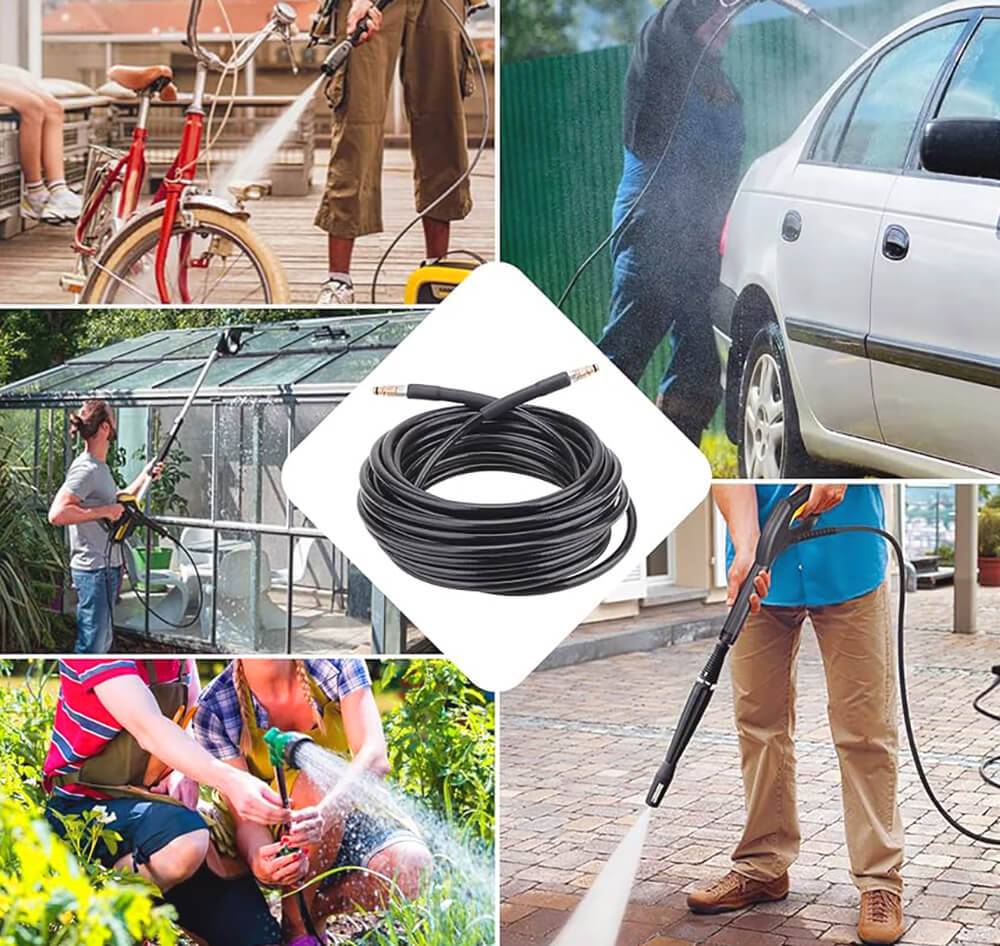
Most high pressure hoses come with connectors that make it easy to connect to a pressure washer. Make sure the washer is turned off, then connect the hose to the inlet of the washer and the gun/boom outlet. Consult your pressure washer's manual for specific hookup instructions.
Special high temperature resistant hose is designed to handle hot water without damaging high pressure hose. However, using hot water in hoses that are not specially designed can damage high pressure hoses. Always make sure you have the right high pressure hose for right application.
Compatibility varies by hose model. Some are universally compatible, while others are designed specifically for certain models or brands. Always make sure high pressure hose is compatible with model of your pressure washer to avoid damage to machine or hose.
For proper storage, drain high pressure hose completely and roll it up loosely without kinks or sharp bends. Store it in a cool, dry place away from direct sunlight to extend its service life.
Steel braided hose features multiple layers of steel wire braid for added durability and pressure resistance. Non-braided hoses, meanwhile, are generally lighter and more flexible but may not be able to withstand the extreme pressures that wire-braided hoses can.
Introduce
While frequently overlooked, high pressure hoses serve a vital role in any efficient pressure washer. It's function as channels, directing and delivering high-pressure water to areas requiring dirt elimination. However, not all hoses are alike; they can considerably differ in aspects such as material construct, length, diameter, as well as their capability to endure different pressure levels, among other properties. Making appropriate hose selection can profoundly influence both performance and lifespan of pressure washer.
In this comprehensive guide provided by BISON, we will delve into various types of high pressure washer hoses, discuss methods to select the apt high pressure hose for your distinct application, and furnish you with extensive information about maintenance, upkeep, as well as safety factors.
By the end of this article, you will have broadened your knowledge of complex world of pressure washer hoses, giving you the information you need to make an informed purchasing decision.
High pressure hoses are divided into various types based on their material makeup. Each type of high pressure hose material, has its unique advantages and disadvantages. Let's break down these three materials:
Pros: Rubber hoses are known for their durability and flexibility. They can withstand high pressure and heat without sagging, cracking or kinking. Just as importantly, they are wear-resistant and can withstand rougher handling, ensuring longer service life in pressure-intensive applications.
Cons: The disadvantage is that rubber hoses are generally heavier and more expensive than similar hoses. This may make them less suitable for tasks that require a lot of movement or are on a tight budget.
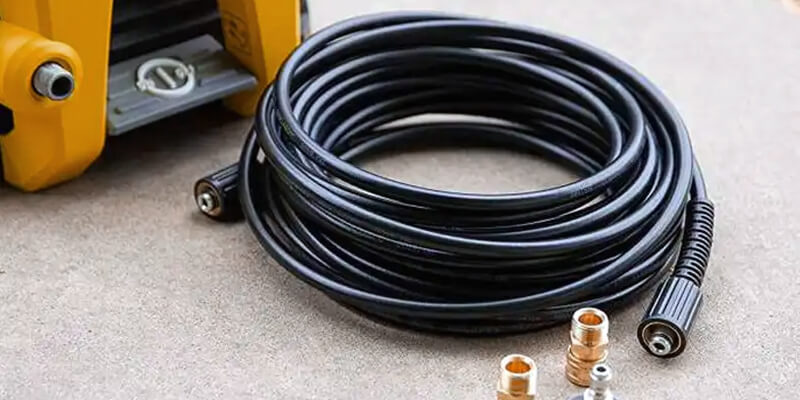
Cons: PVC hoses, being both lightweight and cost-effective, are a favored option for residental pressure washer applications. They exhibit flexibility and adept at withstanding bends, twists.
Cons: PVC hoses are not as resistant to heat and cold conditions. Over time, constant exposure to extreme sunlight or cold temperatures can cause them to gradually break down. Furthermore, they exhibit lower wear resistance, potentially reducing their lifespan, particularly in tough environments. Hence, despite their advantages, these factors should be considered when utilizing PVC hoses in specific conditions.
Pros: Polyurethane hoses are renowned for their superb flexibility, lightness paired with strength, and durable nature. They excel in resisting wear and tear, extreme heat, and adverse weather phenomena. Their resistance to kinking further enhances their reliability and ease of upkeep.
Cons: On the whole, polyurethane hoses come at a steeper, premium price point. Despite their robust nature, they are more vulnerable to punctures or cuts when compared to rubber hoses. This makes them less apt for usage in spaces peppered with sharp items.
Pros: Engineered explicitly to endure high-temperature water, generally with a capacity up to approximately 200 degrees Fahrenheit (93 degrees Celsius), the specific endurance varies from one type or brand to another. The materials used for their construction possess superior heat resistance, enabling them to tolerate temperatures beyond the capability of other hose variants. Commonly used in industrial cleaning, food processing industries and any other application requiring high pressure hot water.
Cons:
While hot water hoses are good at handling high temperatures, they may not perform well in extremely cold conditions. They may not come in as many varieties of materials compared to other types of hoses. Due to its specialized design and functionality, hot water hoses can be more expensive than regular water hoses and heavier than regular or cold water hoses.
Exploring the domain of high pressure hoses can indeed be a complex task, many options available. Here are some pivotal pointers to assist you in making an informed decision:
The efficiency of high pressure hose hinges upon its diameter, as this fundamentally influences both water flow rate and PSI, which are vital elements in gauging its performance. The following are common sizes:
1/4 Inch: Such hoses are usually employed for light to moderate intensity jobs, capable of handling pressures up to 2700 PSI, making them perfect for domestic and garden applications.
5/16 Inch: The 5/16-inch hose is a slightly larger size and is suitable for medium to heavy duty (up to 3200 PSI). This versatile size balances weight, flexibility and flow.
3/8 Inch: This thickness is a favorite for professional use because its larger inside diameter allows for faster water flow and is suitable for heavy-duty tasks (up to 5000 PSI).
Hose length is important. Too short and you may find yourself moving pressure washer around a lot; too long and the hose may get tangled or kinked. The ideal hose length depends on:
Work area size: Large cleaning areas, such as a wide driveway or a long gutter, may require a longer hose for optimal cleaning coverage without having to move pressure washer frequently.
Portability needs: If you need to transport your pressure washer frequently, a longer pressure washer hose may add extra weight and storage difficulties.
For general private use, such as car washing, a 25 to 30 foot hose is usually sufficient. However, substantial tasks may require lengths up to 100 feet.
Consider your high pressure hose an investment and prioritize high-quality reinforcement to ensure longevity and superior performance. For example:
Steel wire braid: Steel wire braid reinforced hose provides extra durability and strength while remaining flexible to resist kinking or twisting.
It is crucial to have correct connectors and ensure compatibility between high pressure hose and pressure washer itself. The most popular connector types include:
M22: These threaded screw-type connectors are commonly used on consumer-grade pressure washers.
Quick connect: They install and remove quickly and easily, making them ideal for professional-grade pressure washers.
Be sure to double check type of connection your pressure washer uses and use a hose with compatible fittings to ensure a smooth and tight fit.
By considering these points, your choice will better suit your needs, ensuring a robust, efficient, and worry-free pressure washing experience.
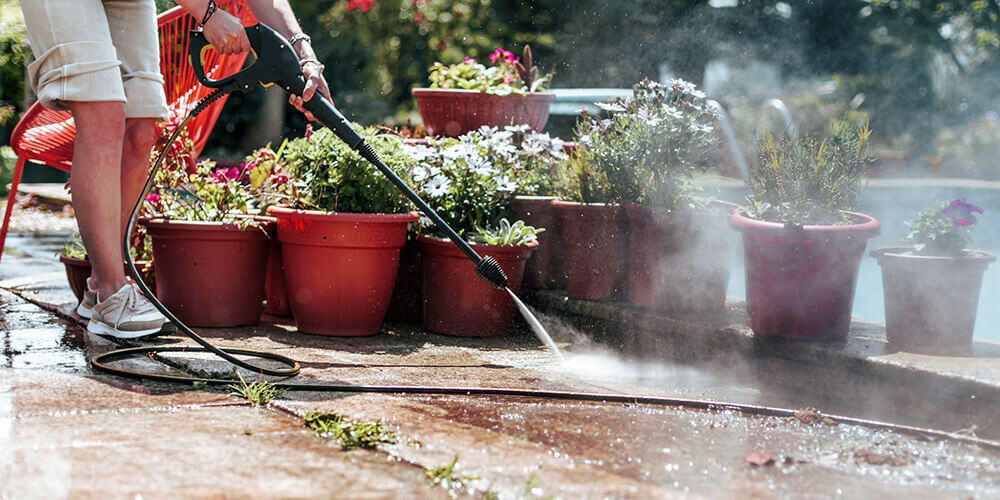
In addition to high pressure hose type, diameter, length, and connections, a few other considerations can help ensure you choose the perfect high pressure hose for your needs:
Resistant to kink
High pressure hose susceptible to kinking will obstruct water flow, adversely impacting efficiency of pressure cleaning, and potentially lead to premature hose wear. To safeguard your investment and optimize productivity, choose high pressure hose with a strong kink resistance rating.
Technological advancements have led to hose designs and materials that significantly enhance kink resistance. Such as steel wire braid reinforcements, can significantly improve kink resistance.
Durability
A sturdy high pressure hose can withstanding daily demands of pressure washing without experiencing tears, punctures, or a gradual loss of pressure over time. Consider factors such as high-quality reinforcements and hose thickness when evaluating its potential durability. Additionally, some materials are more resistant to degradation from exposure to certain chemicals, so consider the cleaners you may be using.
Temperature range
The ability of pressure washer hoses to endure elevated water temperatures becomes paramount, particularly when paired with hot water pressure washers. Accordingly, selecting a hose with appropriate temperature rating that aligns with your cleaning requirements is vital. Hoses crafted from materials like rubber and polyurethane typically provide better heat resistance capabilities compared to their PVC counterparts.
Pressure level compatibility (PSI)
An essential parameter to contemplate when choosing high washer hose is its operating pressure rating, better known as PSI. This PSI rating of high pressure hose indicates upper limit of pressure that the hose can endure. Make sure that hose's pressure rating surpasses maximum PSI of pressure washer with which it will be used. If hose's PSI rating falls short, it could burst under excessive pressure, thereby posing a serious safety risk.
At its core, purchasing the right high washer hose is a delicate interplay of multiple considerations. Understanding these factors and carefully evaluating your options can help you achieve pressure cleaning that is practical, efficient, and safe.
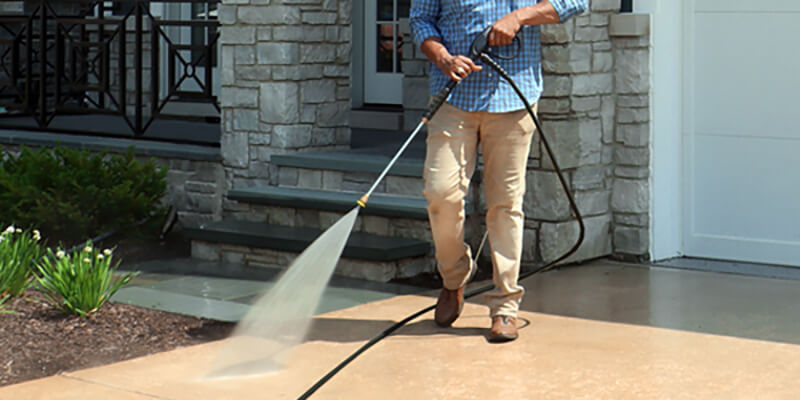
Proactive maintenance can extend the lifespan of your high pressure hose and enhance safety during its operation. Here are several practical maintenance tips that will ensure your high pressure hose functions optimally:
Check high pressure hoses frequently for signs of wear, including leaks, cracks, or any physical damage. Remember, even minor faults can escalate into serious problems under high pressure. Replace hoses as soon as you notice obvious signs of wear or damage.
Over time, kinks can compromise the structural integrity of the hose. Always make sure high pressure hose extends properly and does not bend excessively during use. If possible, it's best to use kink-resistant hose to avoid this problem.
Make sure high pressure hose is clean after each use. Flush hoses inside and out to remove dirt, residue, or grime. This prevents buildup from clogging the water flow and damaging the hose material over time.
Appropriate storage significantly contributes to durability of your high pressure hose. Ideally, keep your hose secure in an environment that is clean, dry, and free from dust. Shield it from excessive heat or cold, aggressive chemicals, and prolonged exposure to direct sunlight, as such conditions can speed up breakdown of the hose material. Coil high pressure hose gently without sharp bends to help avoid kinks and knots.
Just as important as maintenance are safety considerations. It's essential to always suit up in suitable safety equipment, including gloves and safety glasses, when you are operating a pressure washer. Be careful not to aim water jet at any people or animals, as high pressure output can lead to injuries. Moreover, avoid surpassing designated pressure limit of your high pressure hose. A hose subjected to excessive pressure is prone to bursting, posing a significant risk of harm.
Maintaining a high pressure hose doesn't have to be a difficult task; it's more important to stick to simple yet effective procedures to help extend its life while ensuring safe use.
In this article, we highlight the importance of effective selection, use, and maintenance of high pressure hoses, all of which will help optimize your cleaning efforts. Examples include understanding hose diameter and its impact on water flow and PSI, determining hose length relevant to the task at hand, confirming hose material quality, and ensuring compatibility between connectors and cleaning equipment. We've also highlighted key safety precautions to remember, reminding every user that proper use of high pressure hose ensures excellent cleaning results.
Now that you have this expertise, you may be wondering where you can find such an ideal hose that ticks all the boxes. This is where we recommend BISON high pressure hose. BISON provides a range of high-quality and durable high pressure hoses tailored to accommodate various cleaning requirements. Guaranteeing a cleaning process that's both efficient in yielding desired results and effective in delivering a satisfying experience.
Known for their superior quality, BISON high pressure hoses are durable, well-constructed and designed to withstand high PSI to provide you with a reliable, efficient and safe cleaning experience. Take your cleaning efficiency, safety and performance to the next level with BISON high pressure hoses.
table of contents